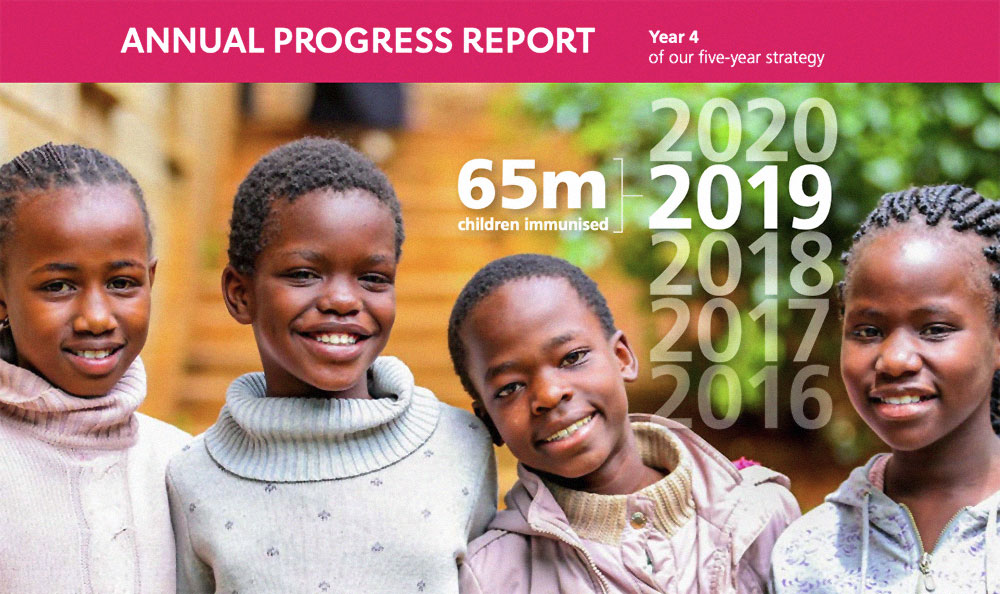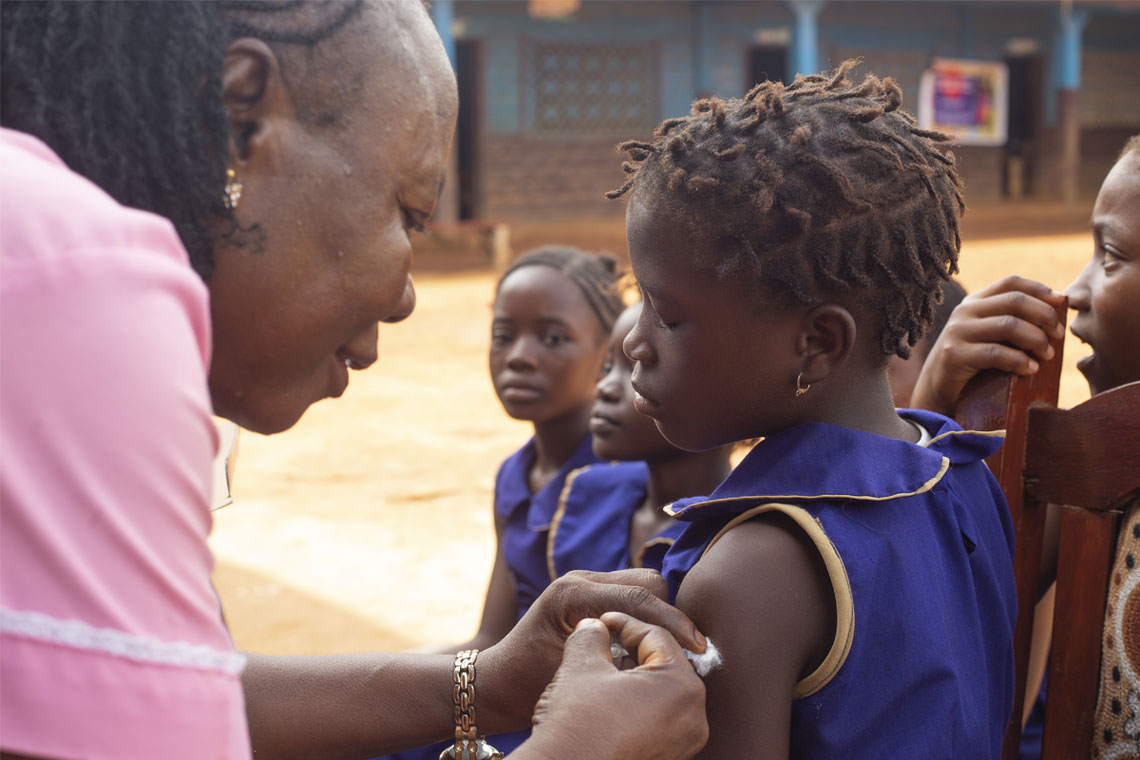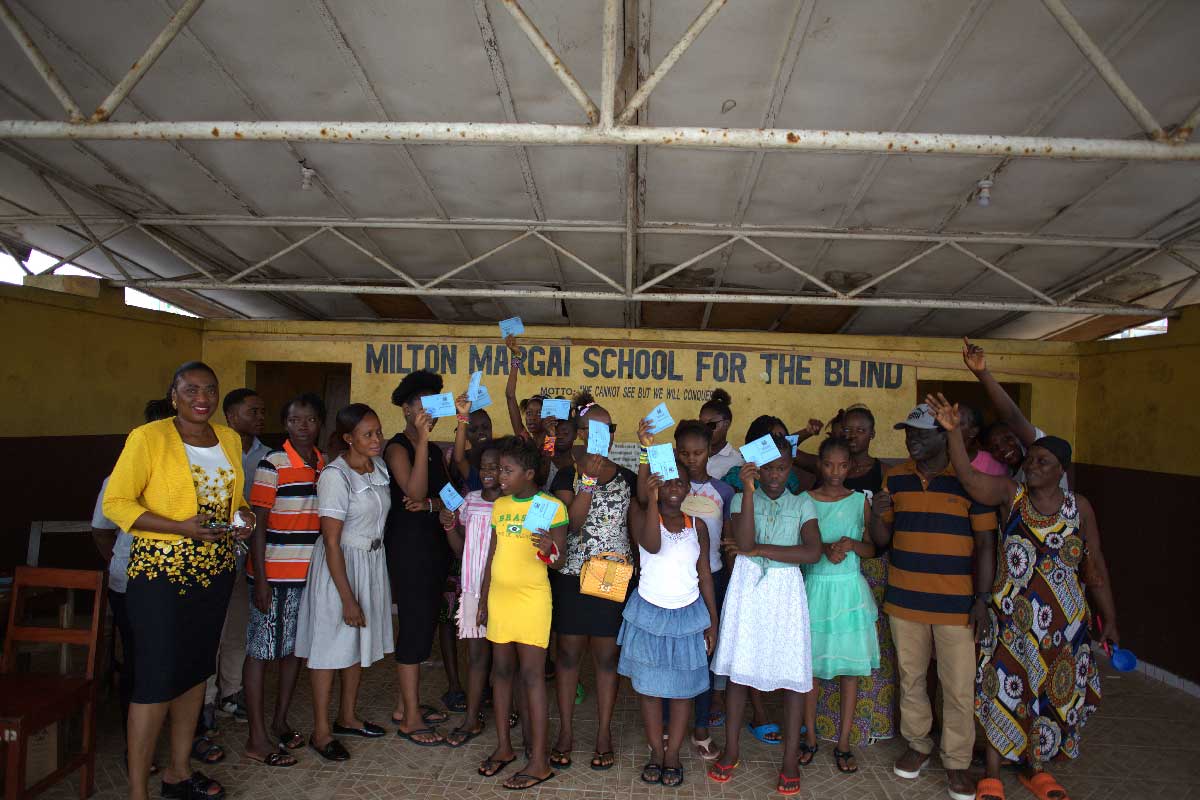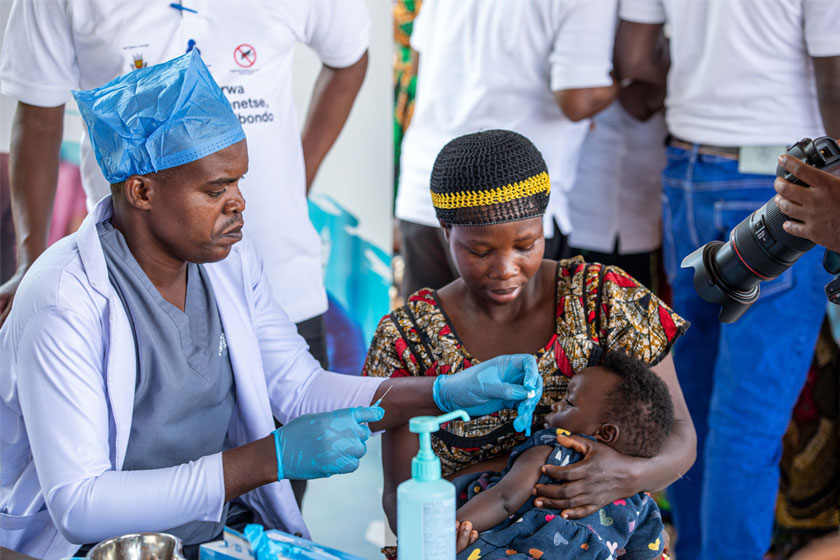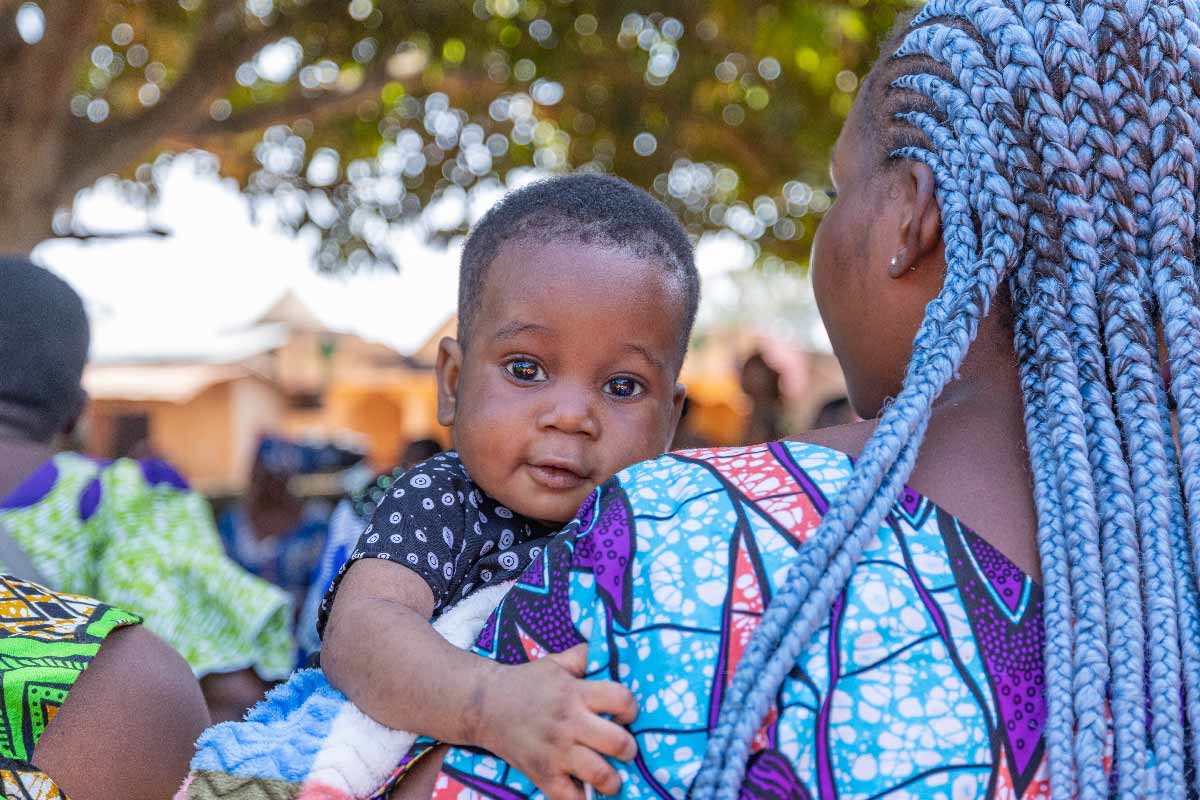What do vaccines do?
The benefits of immunisation extend beyond preventing childhood deaths. Vaccines are also a vital tool in the fights against cancer, outbreaks and antimicrobial resistance.
- 29 September 2020
- 3 min read
- by Gavi Staff
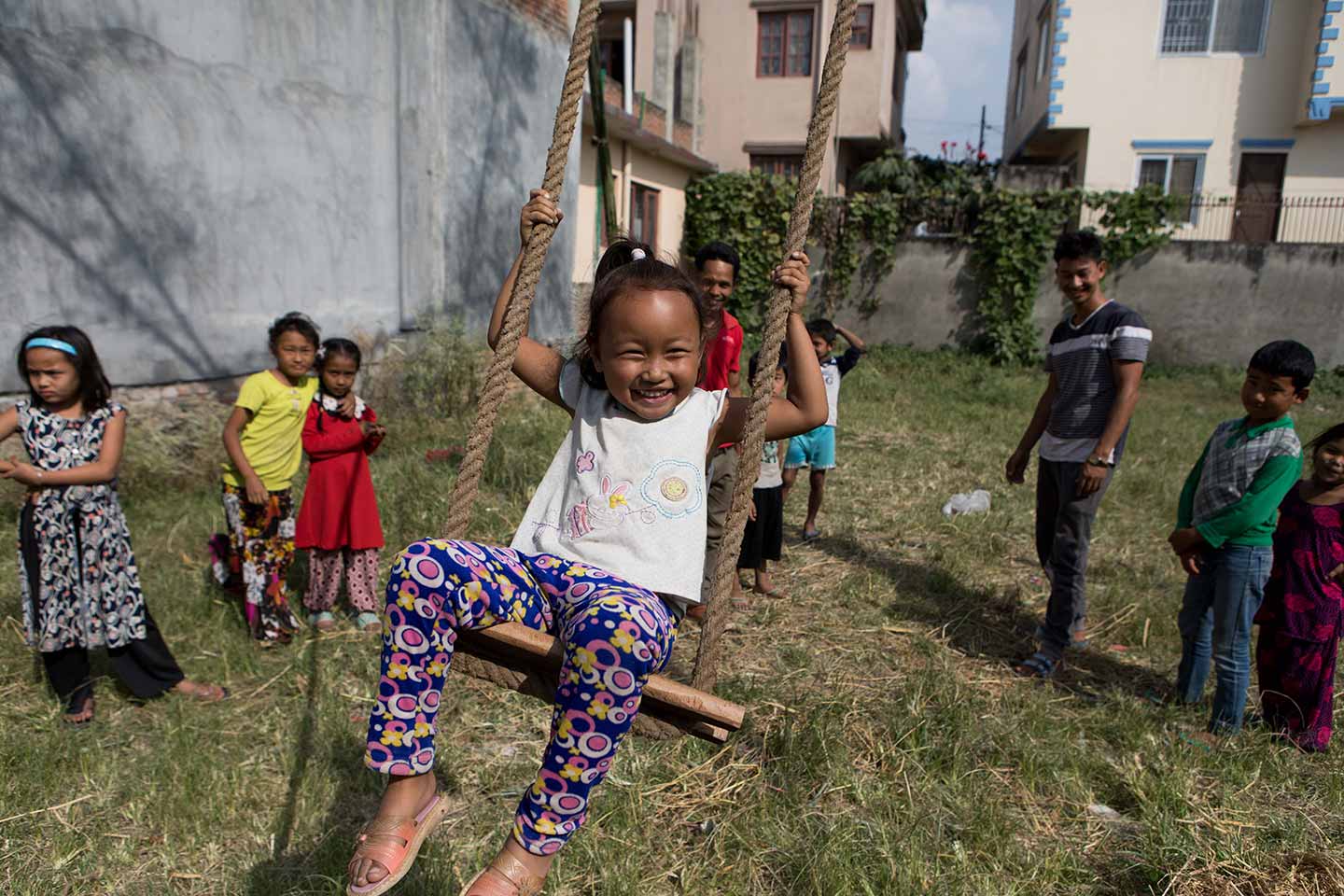
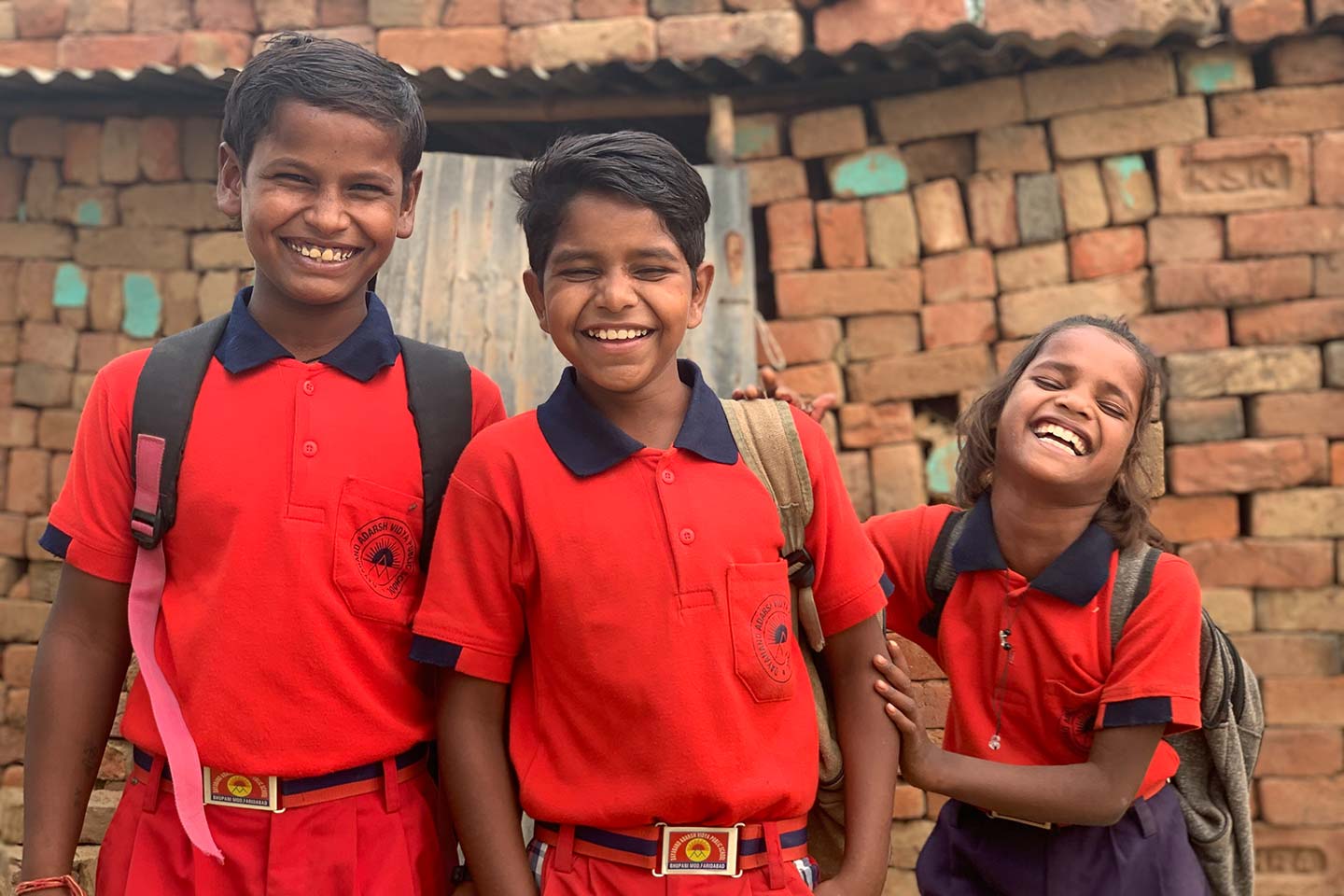
Protect children from deadly diseases
In the poorest countries, nearly one in four deaths of children under five are caused by pneumonia or diarrhoea. These diseases were even more of a death sentence for young children before new vaccines were made available with Gavi funding. Pneumococcal vaccine prevents the most common bacterial cause of pneumonia. Rotavirus vaccine protects against the deadliest type of diarrhoeal disease. Coverage of pneumococcal conjugate and rotavirus vaccines in Gavi-supported countries remains higher than the global average – showing Gavi’s significant impact in scaling up vaccines and reducing the gap between lower- and higher-income countries.
Prevent disease outbreaks
Outbreaks of vaccine-preventable diseases, such as measles, are a sign of weakness in routine immunisation programmes – often exacerbated by rapid urbanisation; crowded, unsanitary living conditions; climate change; and population growth and movement. When vaccination rates drop below the herd immunity threshold, outbreaks can spread – infecting and killing. Gavi works with partnerships to prevent and respond to outbreaks, including the Global Task Force on Cholera Control, the Eliminate Yellow Fever Epidemics (EYE) Strategy, the Measles & Rubella Initiative and the Global Polio Eradication Initiative.
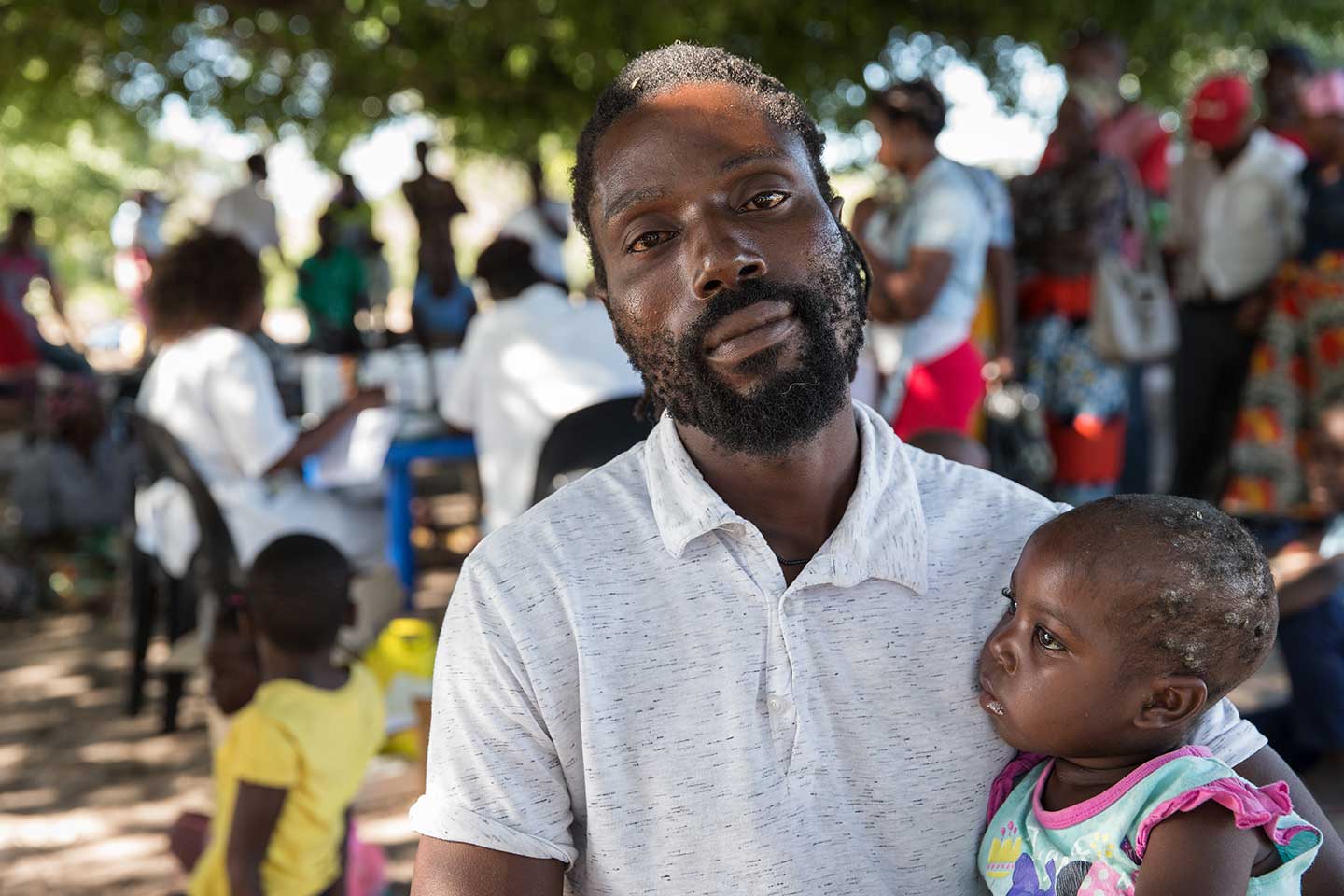

Fight cancer
Two other vaccines supported by Gavi help to prevent certain types of cancer. Human papillomavirus (HPV) vaccines protect against the main causes of cervical cancer and are being introduced in a growing number of countries, despite some challenges with supply. Hepatitis B vaccine, which is one of the components of the five-in-one pentavalent vaccine, prevents a leading cause of liver cancer. By protecting each new generation with these vaccines, countries are helping to reduce the burden of cancer.
Help prevent antimicrobial resistance
Pneumonia and severe diarrhoea are often treated with antibiotics, even when they are caused by a virus and therefore antibiotics are ineffective – leading to increased antimicrobial resistance. Vaccine Alliance support for vaccines to prevent causes of pneumonia – Haemophilus influenzae type b (Hib) and pneumococcal pneumonia – is estimated to have averted the need for up to 14 million doses of antibiotics from 2011–2015. Gavi supports countries to protect hundreds of millions of children against meningococcal meningitis and rotavirus, thereby reducing the purchase and use of antibiotics.

Read more about how Gavi has accelerated equitable uptake and coverage of vaccines in Gavi’s 2019 Annual Progress Report.
